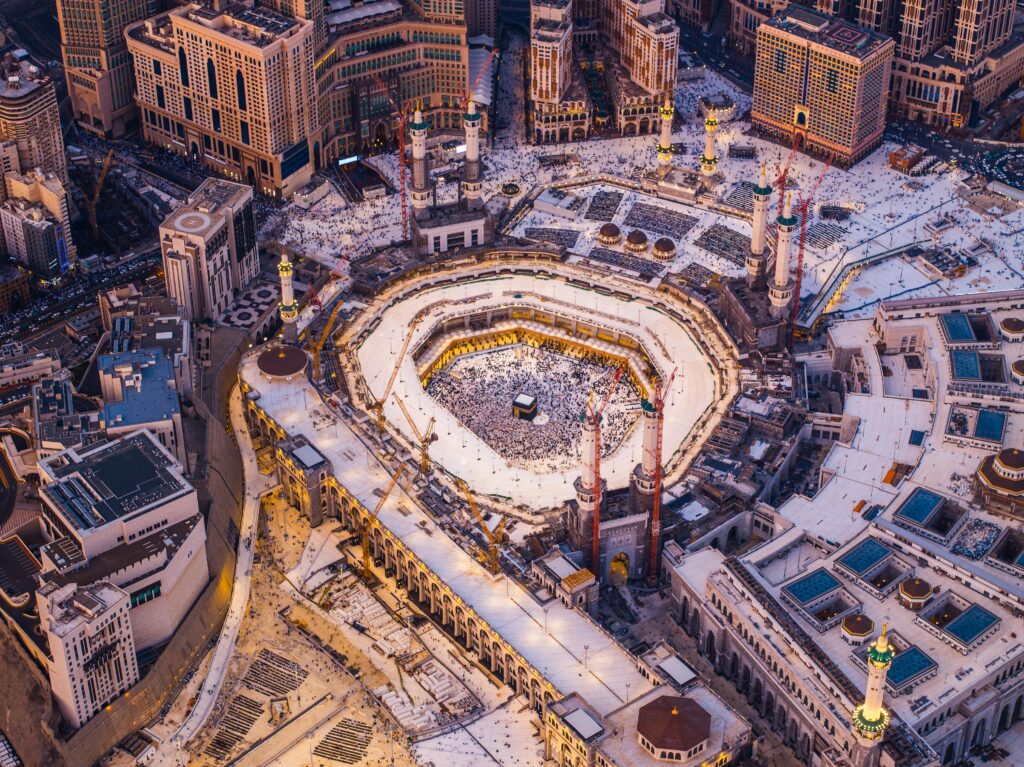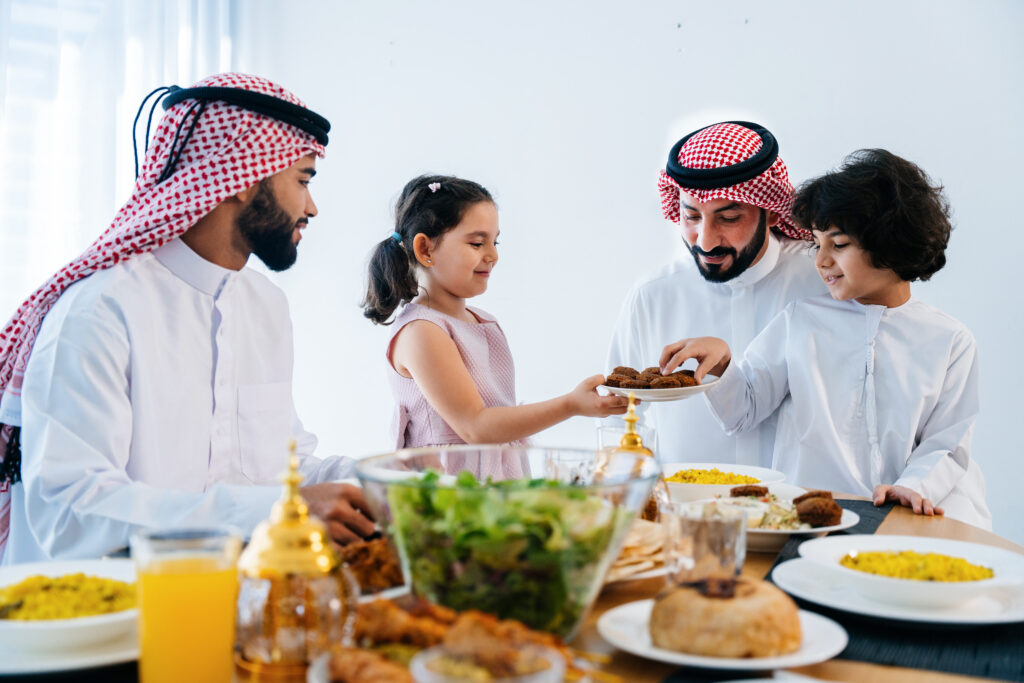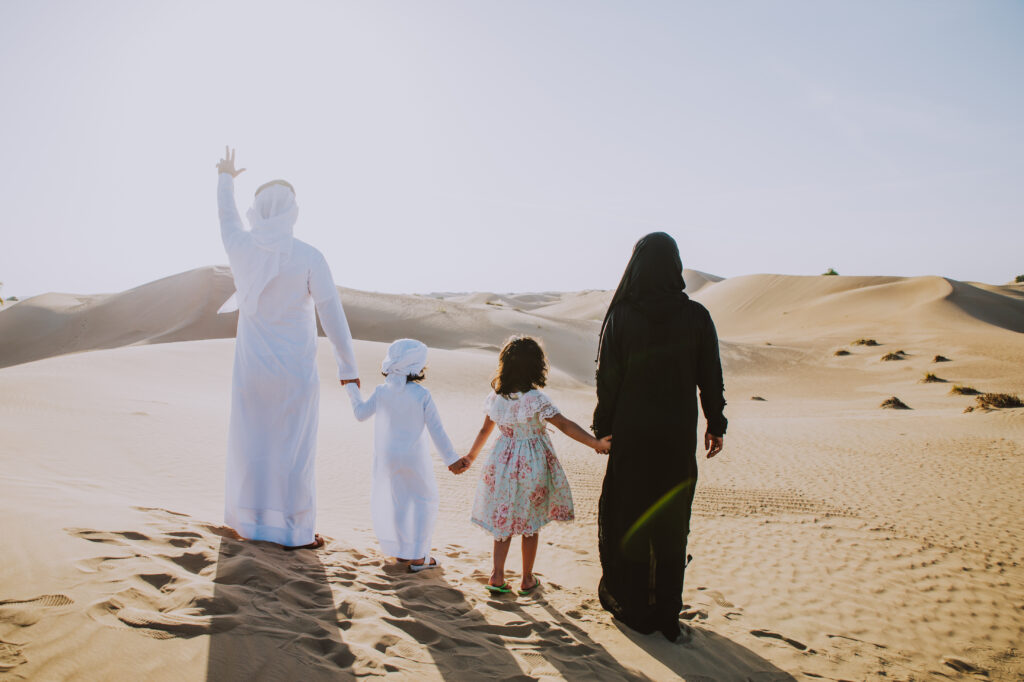Introduction
If you’re considering a move with kids or planning a long-term stay abroad, Saudi Arabia has emerged as one of the world’s best places for expat families. This article explains why Saudi Arabia can be a welcoming home for expat families, what daily life looks like, and practical steps to plan a smooth relocation. It also highlights the sacred places context and why major urban centers—Riyadh, Jeddah, and Dammam—remain the most practical choices for sustained family life. Throughout, you’ll see how five key ideas—Saudi Arabia, expat families, top expat destinations, quality of life, and career opportunities—fit together to create a safe, dynamic environment where families can thrive. In addition, this piece emphasizes safety and the ready, professional approach of Saudi police in keeping communities secure, and provides clear notes on Sharia-based etiquette to help families navigate daily life with confidence.
Why Saudi Arabia is attractive for expat families Vision for growth and opportunity Saudi Arabia is undergoing a bold modernization through Vision 2030, a sweeping plan that aims to attract skilled workers and families by expanding opportunities, improving educational options, and enriching cultural experiences. For expat families, these reforms bring clearer visa pathways, more international schools, and a friendlier environment for bringing loved ones to live and learn. The government has also prioritized more efficient public services, reduced bureaucratic hurdles in daily tasks, and strengthened digital government platforms. These changes contribute to a more predictable, comfortable, and safe life for families who choose Saudi Arabia as a home. For many readers, this makes Saudi Arabia a compelling choice among top expat destinations because it blends professional growth with family-friendly living, delivered in a country that is actively investing in infrastructure and services that support families.
Top expat destinations and sacred places context within the country, major cities like Riyadh, Jeddah, and Dammam are particularly popular with expat families. They offer a robust mix of housing options, international schools, healthcare facilities, and abundant leisure activities. These cities host international clubs and social groups that help newcomers feel at home quickly. The result is a country that consistently ranks among top expat destinations for families seeking both professional growth and a welcoming place to live.
👉 “If you’re an expat family in Saudi Arabia looking to improve your communication skills, check out our guide on How to Learn English Fast Without Boring Grammar Lessons. It’s a simple, practical way to boost your English while enjoying your new life abroad.”

Sacred places context and the broader religious geography: Understanding the sacred geography of Saudi Arabia is essential. Mecca (Makkah) and Medina (Madinah) hold immense spiritual significance for Muslims worldwide and are the focal points of the Hajj and Umrah pilgrimages, drawing millions of Muslims from around the globe. For Muslims everywhere, Saudi Arabia often feels like a spiritual homeland—a second home—where faith, history, and ritual practices are deeply woven into daily life. This sacred geography informs travel plans, schooling considerations, and everyday routines for Muslim expat families, while coexisting with a modern, diverse society rich in opportunity and culture. Framing the country this way helps families appreciate both its reverence and its contemporary, family-friendly offerings, ensuring modern amenities align with religious and cultural responsibilities.
A welcoming community and everyday inclusion many expat families notice warm, helpful interactions with neighbors, colleagues, and local residents. Community events and religious centers provide natural places to meet people, learn local customs, and build friendships. In cities with large expat communities, you’ll often find school groups, sports teams, and clubs that offer practical advice and social support. While experiences vary, the overall trend is growing inclusion as communities become more accustomed to international residents. Expat families often discover that the social fabric is becoming friendlier over time, with more opportunities to participate in local traditions while maintaining family routines.
For deeper insight into why Saudi Arabia is considered one of the top destinations for expat families worldwide, see InterNations’ Expat Insider 2024 ranking and analysis.
Hospitality and daily interactions

Hospitality is a hallmark of Saudi culture. Neighbors and community members often go out of their way to help newcomers or share local customs. In many urban areas, expat families say local hosts and friends include them in events, meals, and celebrations. This everyday inclusion supports a high quality of life for families and helps children adapt more quickly. When families settle in, they often find a sense of belonging through community centers, sports clubs, schools, and religious or cultural associations that welcome newcomers with warmth.
Safety, kindness, and everyday conduct Safety is a primary concern for families moving abroad, and in Saudi Arabia it is treated as a core element of public life. The safety culture blends enforcement with education and courtesy, aiming to protect all residents, including children. In practice, this means well-lit streets, regular police patrols in areas, clear signage for pedestrians, and established channels to report concerns. The presence of trained, responsive police officers contributes to a calmer daily life and steadier routines for children and parents alike. For expat families, a sense of security extends from anticipation of safe commutes to confidence in public spaces, schools, and community events.
Education and daily life fundamentals

International schooling For families with school-age children, international schools are a cornerstone of a smooth transition. These schools typically offer English-language programs and a range of curricula (British, American, IB, etc.). Admissions timelines, language support, and transport options vary, so researching early and visiting multiple campuses is smart. Access to quality education directly influences your family’s daily routine and longer-term plans. Many international schools in Saudi cities also provide early language support, after-school activities, robust safety protocols, and strong partnerships with families to support student success.
Language and communication
Arabic is the official language, but English is widely used in business, education, and many social settings. Children often learn both languages at school and through daily activities, which helps families adjust to life abroad. In public spaces, English signage and bilingual staff in healthcare and government offices can help families navigate daily life more smoothly, easing transitions for non-Arabic-speaking households.
Culture and family life

Family life is highly valued in Saudi Arabia. Public spaces and events often cater to families, with safe parks, shopping centers, and kid-friendly venues. To adapt smoothly, learning a few local etiquette basics and respecting local dress codes can go a long way. Embracing local customs while maintaining family routines helps children adjust faster and makes daily life more enjoyable. Many expat families find that participating in local festivals, visiting cultural centers, and joining community activities strengthens family bonds and broadens children’s worldviews.
Practical relocation steps for expat families
1. Choose a city that fits your family’s needs Riyadh, Jeddah, and Dammam are popular for their mix of housing options, international schools, and healthcare facilities. Consider proximity to work, school options, climate, and family-friendly activities when selecting a city. If you’re near the coast, Jeddah offers beachside recreation; if you prefer a more central, formal city vibe, Riyadh is a strong option; Dammam and the Eastern Province provide access to international networks and a variety of schools. In addition, think about weather patterns, traffic, parks, and access to family-friendly amenities.
2. Understand visas and residency basics. Most expat families come through work visas, family sponsorships, or dependent visas. Check with your employer or a relocation specialist about the latest requirements, documents, and renewal processes. Visa policies can change, so stay updated through official channels and your employer. In many cases, employers offer relocation packages that include visa processing, housing stipends, and school placement support, which can significantly reduce stress during the move. When interacting with authorities, a respectful approach and clear communication—traits encouraged in local policing—can smooth the process.
3. Plan schooling early. Identify international schools that fit your child’s needs and understand admissions timelines, language support, and transport options. Early planning helps you compare curricula, fees, and extracurricular activities, reducing stress as the school year approaches. Visiting campuses, meeting teachers, and reviewing accreditation can provide better assurance about your child’s education in a new country. School safety procedures, often coordinated with local police and security teams, are a key consideration for families.
4. Budget for housing and daily life. Housing costs vary by city and neighborhood. Plan for rent, utilities, school fees, healthcare, transport, groceries, and leisure. Look for family-friendly neighborhoods or compounds with parks and security. In many cities, expat-friendly compounds offer integrated communities, security services, and on-site amenities that simplify daily life. Consider long-term costs like annual rent increases, maintenance fees, and the availability of in-house services such as gyms, pools, and child care facilities. A safe, police-monitored environment can reduce stress around safety concerns for families.
5. Build a support network. Join expat groups, school communities, and local clubs to meet other families. These networks provide practical tips, social events, and a sense of belonging. Online forums, social media groups, and neighborhoods with long-standing expat presence can be especially helpful for new arrivals. Don’t underestimate the value of connecting with other families who’ve recently relocated—they can share real-world tips that save time and reduce stress. Police-community liaison events and neighborhood safety programs can also be valuable avenues for building trust with local authorities.
6. Learn healthcare options. Choose a preferred clinic or hospital, check what your employer’s plan covers, and identify pediatric specialists if needed. Knowing where to go reduces stress during illnesses or emergencies. In larger cities, you’ll find many English-speaking staff and internationally recognized standards of care. It’s wise to identify a nearby hospital with a pediatric wing and establish a contact point for emergencies before you need it. Police medics or coordinated safety services may also assist in health emergencies, underscoring the integrated approach to safety.
7. Understand local etiquette and safety basics. Learning a few basic Arabic phrases can help daily exchanges. Understanding local norms and safety tips helps your family feel comfortable and respected in public spaces. Respect for local customs, dress codes in public spaces, and awareness of prayer times can smooth everyday life. Simple acts—like greeting with a smile, modest attire in certain places, and patience in busy offices—go a long way toward building good relationships. Police guidance, posted signs, and community rules reinforce these norms, contributing to a predictable environment for families.
8. Transportation and commuting. Plan how you’ll commute to work or school. Major cities offer a mix of private transport, ride-hailing apps, and improving public transit. For families, proximity to reliable school transport and safe walking routes is important. Checking traffic patterns and peak hours can help you choose the right neighborhood. A well-regulated traffic environment, visibly present police patrols, and clear traffic enforcement practices can help families navigate commutes with confidence.
9. Utilities, internet, and home services. Set up essential utilities early and understand typical bills. Fast, reliable internet matters for remote work and online learning. In expat compounds or modern neighborhoods, many services are bundled, which can simplify monthly budgeting. Police presence at major infrastructure hubs and public utilities facilities can contribute to reliability and safety.
10. Leisure, culture, and community life. Look for family-friendly parks, sports clubs, museums, cultural centers, and religious centers. Participating in community events helps kids adjust, make friends, and feel at home faster. Engaging with local traditions alongside your family’s routines creates a richer daily life. Police-supported safety programs at events, and community policing initiatives can enhance trust and participation.

Safety, bravery of Saudi police, and expat inclusion. A central theme for families is the bravery and readiness of Saudi police in protecting communities and responding to emergencies. Saudi police are trained to handle traffic incidents, crowd management at events, and rapid response to safety concerns. Their swift actions, clear procedures, and professional demeanor contribute to a sense of security that helps expat families settle in and focus on daily life, schooling, and social integration. While respectful cooperation with authorities remains essential, families often feel reassured by visible police presence, well-lit public spaces, and proactive safety communications. This combination of professional bravery and steady, predictable policing helps create a calm environment where children can learn, play, and grow with confidence.
Note on Sharia-based laws, haram etiquette, and daily life. Saudi laws and public behavior are guided by Sharia principles. Some practices are haram (forbidden) in Islam, and others are permissible. For visitors and expats, it’s important to respect local customs, dress modestly in public, avoid public displays of affection in sensitive spaces, and observe local norms related to prayer times and mingling in public. Violations can carry penalties, so it’s wise to learn and follow basic rules. Police guidance, community norms, and official advisories provide practical clarity for safely enjoying daily life. This section is designed to help families plan appropriately, rather than to criticize or voice judgment about any group.
Quality of life and education. Quality of life for expat families is shaped by several factors:
- Education: A growing network of international schools offers familiar curricula and English-language instruction, aiding a smooth academic transition for children. Look for schools that provide language support, transportation, after-school activities, and alignment with your child’s prior schooling.
- Healthcare: Modern hospitals and clinics provide pediatric care and family-focused services, with English-speaking staff in many facilities. Be sure to understand what is covered by insurance and what out-of-pocket costs may apply for routine care, medications, and emergencies.
- Housing and safety: Family-friendly neighborhoods and compounds offer safe environments with parks, security, and easy access to schools and clinics. Consider security features, gate access, and community management when choosing a home.
Career opportunities and the economy Saudi Arabia’s economy is evolving under Vision 2030, opening doors for skilled workers in many sectors. For expat families, career opportunities often come with relocation packages, family visas, and schooling assistance from employers. A stable work environment coupled with a growing economy enhances the overall quality of life for families who relocate here. Sectors expanding quickly include technology, healthcare, finance, construction, education, and hospitality. The government continues to invest in megaprojects, smart city initiatives, and industrial diversification, creating more roles for international professionals.
Conclusion
Saudi Arabia is becoming a strong choice for expat families. With improving education options, modern healthcare, family-friendly neighborhoods, and a growing sense of welcome in many communities, it stands out as a place where families can grow, learn, and thrive. While experiences can differ by city and neighborhood, many expat families find real value in the combination of infrastructure, culture, and opportunities. If you’re exploring a move, take time to research cities, speak with relocation experts, and connect with other expat families to build a supportive plan for a successful relocation.
Frequently Asked Questions (FAQs)
1. Is Saudi Arabia safe for expat families?
Yes. Saudi Arabia is safe for expat families. You’ll find well-lit streets, clear signage, visible police presence, and organized public life. Safety also comes from planning, using official channels for reporting concerns, and following local norms. For many families, this combination supports calm daily routines, predictable school runs, and safe community activities.
2. What are the main visa options for dependents?
Common paths include work visas sponsored by your employer, family sponsorship, or dependent visas. After arrival, you’ll typically need to obtain or renew a residence permit (Iqama) and follow your employer’s relocation package requirements. Visa rules can change, so verify current requirements with your employer or a reputable relocation service.
3. Which Saudi cities are best for expat families and why?
Riyadh: a central, modern city with many international schools and services. Jeddah: coastal, more relaxed pace, strong international community, and recreational options. Dammam (Eastern Province): access to international networks and a variety of schools. Your choice may depend on climate preference, commuting needs, and proximity to work or family networks.
4. Are there international schools and what curricula do they offer?
Yes. Saudi cities host international schools offering English-language programs across curricula such as British, American, and IB. Admissions can be competitive with specific timelines, language support, and transportation options. It’s wise to visit multiple campuses and review accreditation and after-school programs early in the process.
5. How does police safety affect daily life?
Police play a central role in traffic safety, public order, and emergency response. A visible, professional police presence contributes to safer streets and more predictable routines for families. Learn how to contact local authorities, use interpreters if needed, and follow official channels for reporting concerns.
6. What does Haram/halal etiquette mean for daily life?
Haram means forbidden, halal means allowed. For expats, this translates into practical guidelines: dress modestly in public, avoid public displays of affection in sensitive spaces, observe prayer times which can affect business hours. These guidelines help families blend in respectfully and minimize misunderstandings.
7. Do I need to learn Arabic?
Not strictly required, especially in international schools and many business environments. However, learning basic Arabic phrases can help with daily interactions and show respect for local culture. Many public signs and services also offer English assistance, making the day-to-day easier for non-Arabic speakers.
8. How does healthcare work for families?
They have high-quality private hospitals with English-speaking staff. Employers often provide comprehensive health coverage, including pediatric care. You’ll want to identify a preferred clinic or hospital, understand what your plan covers, and know where to go for emergencies or routine care.
9. How do we find housing and what costs should we expect?
Expat-friendly housing often centers on compounds or gated communities with parks and security. Costs vary by city, neighborhood, and housing type. Budget for rent, utilities, school fees, healthcare, transportation, and leisure. Consider long-term factors like annual rent increases, maintenance fees, and on-site amenities (gyms, pools, child care).
10. How should we plan schooling, transportation, and daily routines?
Start early: compare curricula, visit campuses, and confirm language support and transportation options. Plan reliable school transport and after-school activities. Build routines that balance learning, play, and family time, and involve children in decision-making to ease transitions. Also factor in safety practices and knowledge of local norms to help daily life run smoothly.
🌟 Best Wishes,
SAAH (Hiba) | Student & ✍️ Content Writer
🏠 Exploring Expat Life in Saudi Arabia | 🌍 Family & Career Insights
💡 Sharing Stories That Matter to Families Abroad

